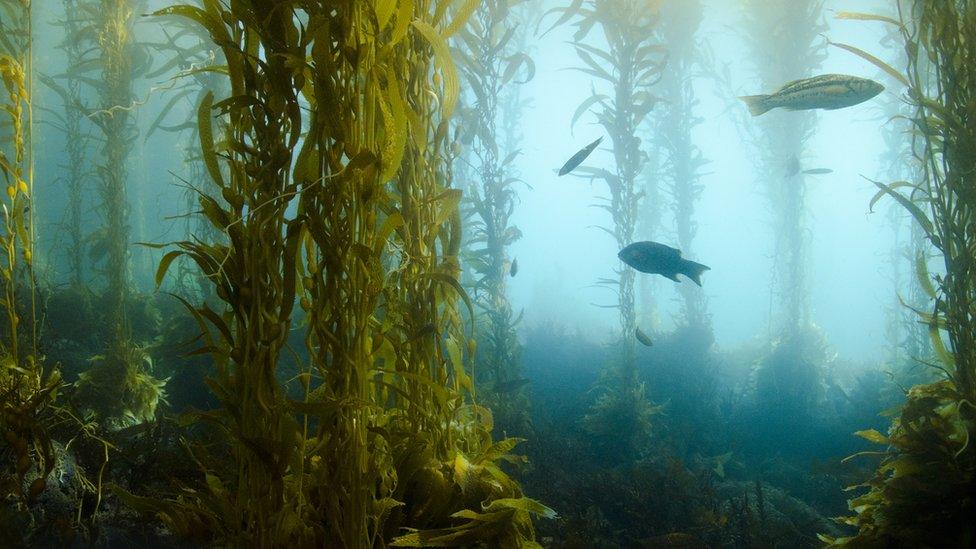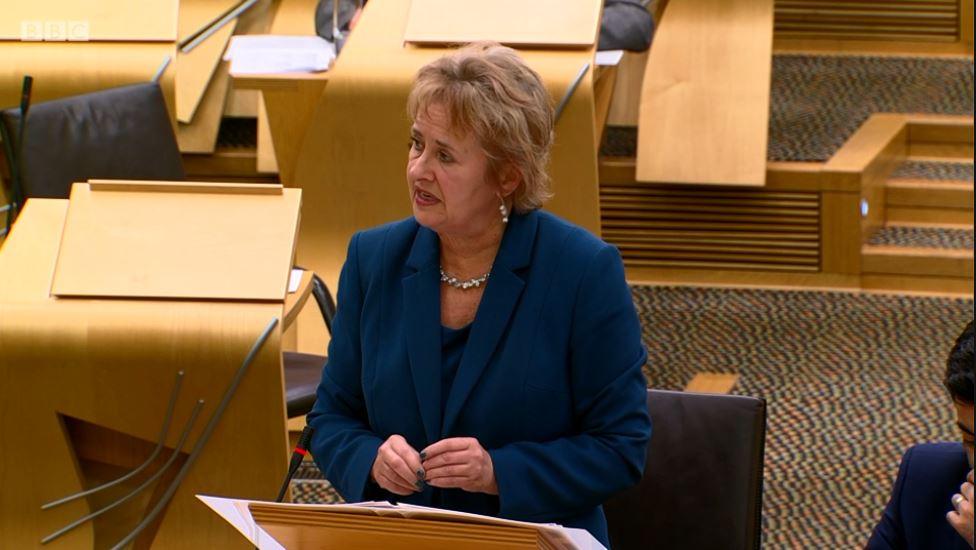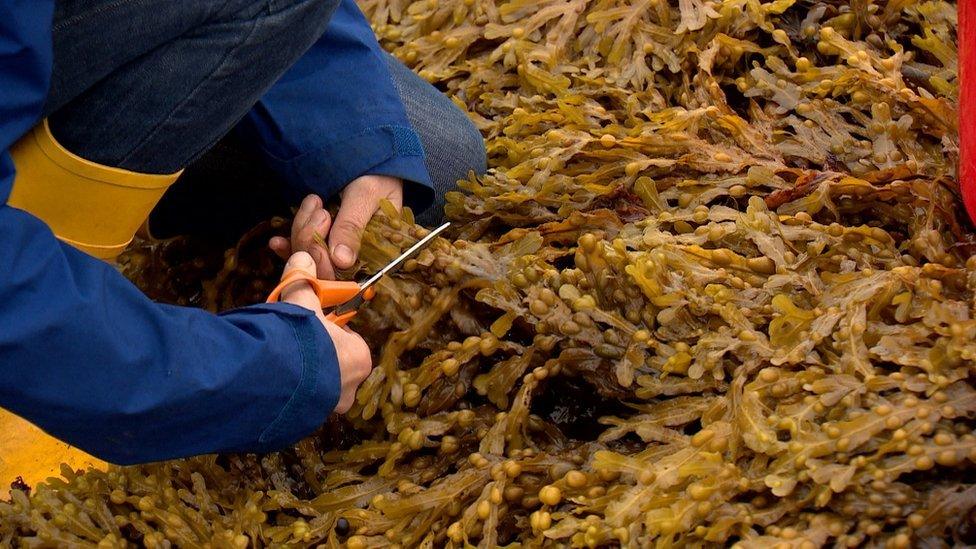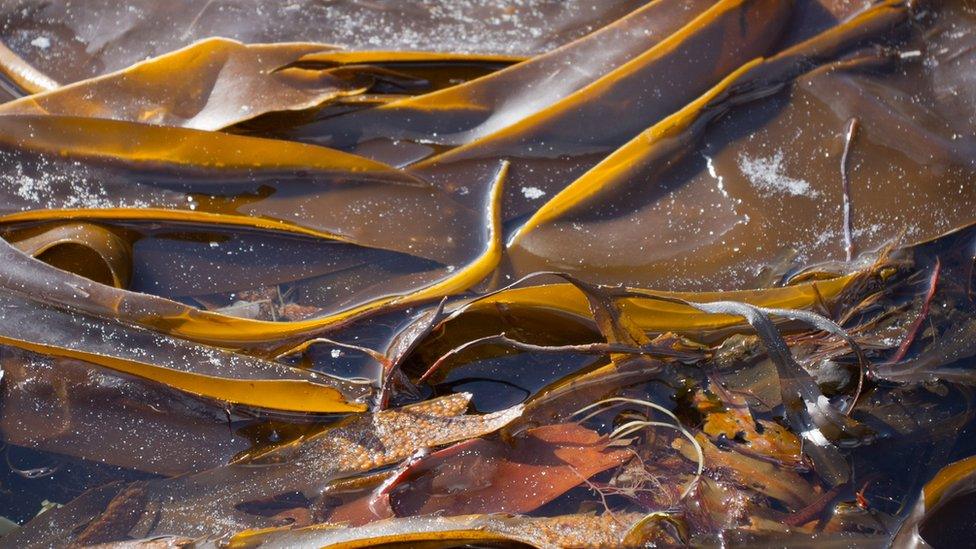Review of Scottish seaweed harvesting rules
- Published

It is estimated that there is up to 20m tonnes of kelp off Scotland's coasts
A review of the regulations around the harvesting of kelp in Scottish waters has been announced by the government.
Concerns had been raised about a firm's application to collect 30,000 tonnes of the seaweed off the Scottish coast.
Environment Secretary Roseanna Cunningham told MSPs that the current regulations were "robust", but that "continuous improvement" was needed.
The parliament agreed new restrictions on certain kinds of seaweed harvesting in some waters around Scotland.
Backers of harvesting had warned that curbs would send a "chilling" message to science companies, and could see Scotland lose out on the benefits of a £300m industry.
Kelp is a kind of seaweed which grows abundantly off the west coast of Scotland and around its islands.
It has traditionally been harvested by hand, but commercial firms have expressed an interest in collecting much larger quantities directly from the forests growing off the coast.
MSPs and green groups voiced concerns that "mechanical" harvesting prevents the plants from re-growing, and has a "devastating" impact on kelp forests and the sealife that inhabits them.

Roseanna Cunningham said she was confident that the present licensing system was "robust"
Ms Cunningham said there were five different ways in which kelp is currently harvested
"It isn't simply hand versus mechanical", she said, adding that all methods would be looked at as part of the review.
She said she was "confident that the licensing process" for harvesting was "robust, thorough, and does what it's supposed to do effectively".
But she said she was "very conscious of the need for continuous improvement of how we regulate activities in our marine environment, particularly where there is interest in new or novel activities".
New restrictions
Opposition MSPs sought to impose new restrictions on harvesting via changes to the Scottish Crown Estate Bill, which was passed by the parliament on Wednesday.
Ms Cunningham argued that the bill "is not the optimal place" to make changes, because Crown Estate land only covers half of the foreshore.
However, she supported changes to the bill first suggested by Green MSP Mark Ruskell which prohibit the commercial removal of wild kelp where it "would inhibit the regrowth of the individual plant".
Ms Cunningham said the changes would allow "scientific research" to continue, and would not prevent hand-cutting of kelp or maintenance work at commercial ports or power stations.
She said the government would "keep the situation under review" so that future forms of harvesting might be permitted.

Seaweed from the Scottish coast has traditionally been harvested by hand
The issue came to the fore after one Scottish company, Marine Biopolymers Ltd (MBL), applied to collect tens of thousands of tonnes of kelp off the west coast each year using harvesting vessels.
The firm insists the practice is "entirely sustainable", and "would not in any way endanger the natural processes".
During the Holyrood debate, Labour's Johann Lamont voiced concerns that members could be "putting science to one side", saying that "sustainable and commercial are not contradictions to each other".
Ms Cunningham said the government would be writing to MBL as a result of the changes made on Wednesday, and urged companies to keep engaging with the authorities.
She said: "There is current interest and there may be more interest in future in new types of seaweed harvesting in Scottish water.
"I hope all who are concerned to be part of this burgeoning industry will continue to engage with the government and relevant authorities."
Mr Ruskell said the new regulations were a victory for "coastal communities throughout Scotland who have campaigned tirelessly" on the issue.
He said: "Kelp forests are hugely important to our marine environment. They dampen waves, protect coastal communities from flooding and erosion, act as a habitat for hundreds of species including commercial fish and store more carbon than the rainforest.
"Greens have been working extremely hard to ensure unsustainable dredging practices are prohibited in legislation and I am delighted that this has now been realised."
- Published19 November 2018
